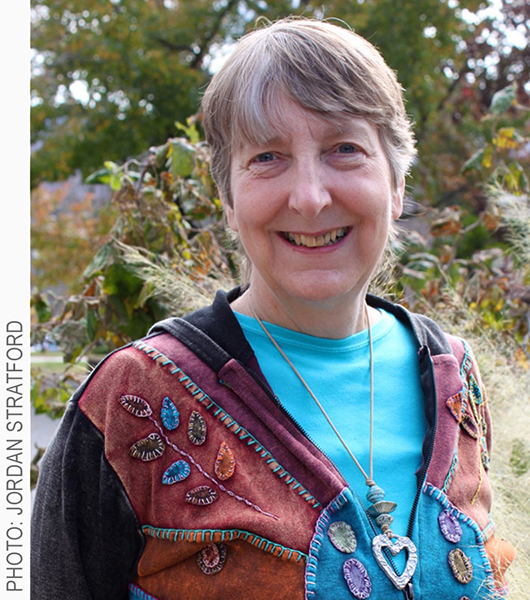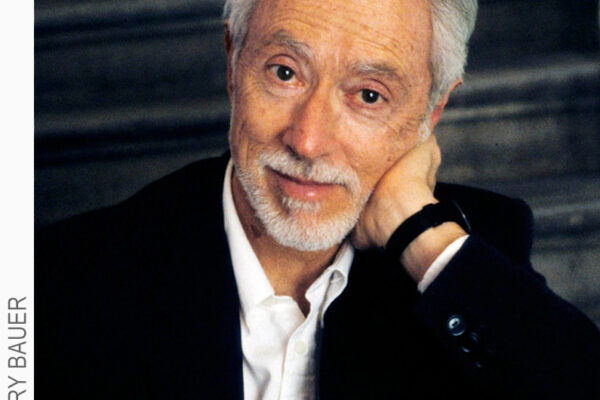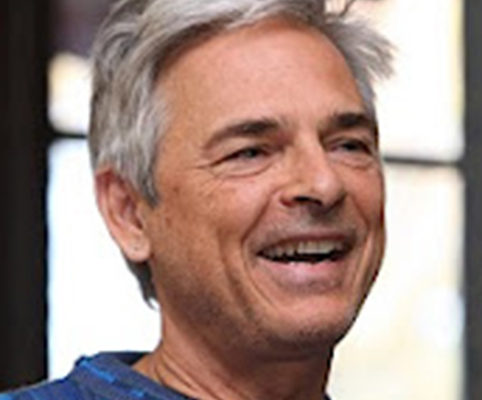Martin Rowe, CAF’s Executive Director, writes on his and CAF’s three-decades long connection with author Carol J. Adams. A video accompanying this article can be found at the jump.
When Carol Adams, the author of The Sexual Politics of Meat and many other titles, told me that she was coming to New York City and wondered if we might cross the Brooklyn Bridge together, we both knew our journey was longer than the span of a river. See the video below, or here.
I’d known Carol for more than three decades, having come across SPOM in 1991 on the top shelf of the Women’s section at the New York Open Center bookstore. I was in my first year of a Master’s degree at NYU and the terms of my scholarship meant I could only volunteer. Since I’d worked in a bookstore in England, had been the mail-order manager at a distributor of New Age titles in London, and planned to work in publishing after graduation, the Open Center was a great place to learn about the US market.
Carol’s book caught my eye because I was also a newly minted vegetarian, and the book’s subtitle—A Feminist Vegetarian Critical Theory—struck home. I’d studied some critical theory as an undergrad and had read Jean Baker Miller and Andrea Dworkin, and I found Carol’s ideas and theorizing at once congenial, unsettling, and thoroughly inspiring. I wrote her a letter of appreciation, used her work in my thesis, and graduated.
At the suggestion of my partner, who’d also recommended I work at the Open Center, I wrote to the book’s then-publisher, Continuum, whose vice-president, Gene Gollogly, my partner’s mother knew. I told him bluntly that I wanted to work for a publisher that would produce books like The Sexual Politics of Meat—meaning not only did I appreciate its content but I liked the direct and polemical manner with which the research and ideas were presented. (Continuum was subsequently bought by Bloomsbury.)
Gene offered me an interview and, eventually, a job, and soon enough I found myself working with Carol directly as the promotional manager not only for SPOM but other titles either edited or written by her, including: Ecofeminism and the Sacred, Violence Against Women and Children, Living Among Meat Eaters, Neither Man nor Beast, and The Pornography of Meat.
When Gene and I left Continuum to found Lantern Books, we invited Carol to join us as an author. There followed a trilogy on spirituality and vegetarianism; two books by her younger son, Ben, on creating games out of the Harry Potter novels; and then, when Continuum made Neither Man nor Beast and The Pornography of Meat out of print, reissuing them under the Lantern imprint.
When I was invited to join the board of the Culture & Animals Foundation (CAF) in 2015, Carol was present, too. A grant from CAF in 1988 had enabled Carol to conduct research on material that would be included in SPOM. It seemed, therefore, an appropriate distillation of our connections that Carol would be the first Tom Regan memorial lecturer in 2018, that she’d join CAF’s advisory board, and that, in 2024, a young feminist vegan scholar named Kaitlyn Kitchen would receive a Tom Regan Research Fellowship to study at the animal archives at NCSU accompanied by a video message from Carol encouraging her in her career—as CAF had encouraged Carol three decades earlier.
It was all of these cables of an intertwined professional life that bound Carol and me before we met on the Manhattan side of the Brooklyn Bridge. Accompanying us were my nephew Alex, in town for a visit; my CAF colleague Laura Alvear Roa; and Ben Buchanan, Carol’s younger son and erstwhile Lantern author whose birth, thirty-five years earlier, had coincided with SPOM winning the Continuum Women’s Studies Award.
We walked over the bridge, and embarked on a literary tour of Brooklyn Heights—traversing the streets haunted by Hart Crane and Marianne Moore, Arthur Miller and Truman Capote, Gipsy Rose Lee and Carson McCullers, and many others.
As I related the tangled lives and struggles of these writers from the late nineteenth and twentieth centuries, it was hard not to reflect on the effect a book—one book—had had on my personal and professional life, and how many of the authors we celebrated that day had hoped that one of their works would have the same effect when they, too, set out to be a writer. In the Fall of 2024, Carol celebrates the thirty-fifth anniversary of the publication of The Sexual Politics of Meat with a new edition, whose new foreword will tell the story of the origins of an idea she first thought of half a century previously.
It’s a span of a work of literature many of us can only dream of.





